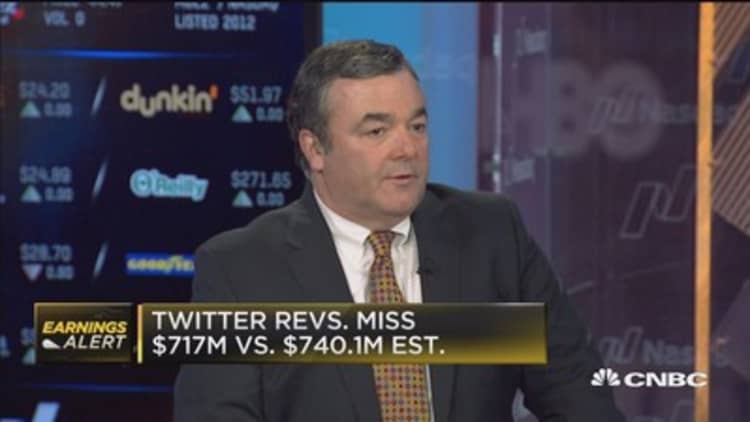
The Federal Reserve policy will have greater impact on the economy than will President Donald Trump, analyst Peter Boockvar said Thursday.
"I think 2017 will be driven more by the Fed, the ECB, the BOJ, more so than what Trump actually unveils," the Lindsey Group analyst told CNBC's "Squawk Box."
The Fed indicated in December it expects to raise interest rates three times this year, which Boockvar said was the first reason for the central bank overshadowing Trump's policy moves.
The analyst cited the European Central Bank and Bank of Japan's quantitative easing measures as other reasons why central banks will lead the way in 2017. Quantitative easing is an attempt by central banks to artificially lower interest rates by buying government and other securities to boost the money supply.
"I think ideally, [Fed Chair Janet] Yellen, in her models, wants to raise three times for the next three years and get to her magic 3 percent," Boockvar said, noting that bond market indicators are not pricing in three rate hikes for this year.
"They said they're not even going to raise once until June. I think she is going to be a little more hawkish next week. I think she wants to give herself flexibility that March is a real possibility. [And] I think the market is not set up for that," he said.
Yellen appears before Congress next week to give the Fed's semi-annual outlook on the economy.
Bookckvar said with markets running high on expectations of Trump's policies, she may be more hawkish and signal an upcoming hike.
"The market is giving her a gift to raise rates, at least the stock market. She would rather raise rates with the market at all-time highs than be forced to do it if the market's down 10 percent," he said.

Still, even if central bank policy continues to drive the economy in 2017, it may take until 2018 or beyond to see any economic boost, said Gabriela Santos, global markets strategist at JPMorgan Funds.
"I think [the rally] was built on two things. It was built on the economy we already have, which is one that was already accelerating in the second half of last year, globally even. And it was based on some hope of some policy implementation," she said.
But Santos said that calls for the GDP growth rate rising to 3 percent by year-end were unrealistic.
"That's not something that we think is tangible," she said. "And I do think if you look out further to 2018, 2019, there was some hope that perhaps we'd have more consistent 3 percent growth. And that's just not something we believe we'll necessarily have."
To investors looking to play the stock market in this climate, Santos recommends putting money into sectors that were doing well in the second half of 2016.
"Financials is one of the key sectors that we're looking at. And this is not based on speculation of policy change," Santos said. "Yes, it would be nice, nice icing on the cake to have less regulation. But it's based, again, on the economy that we have, which is one where credit is growing and where the Fed is going to raise rates."


